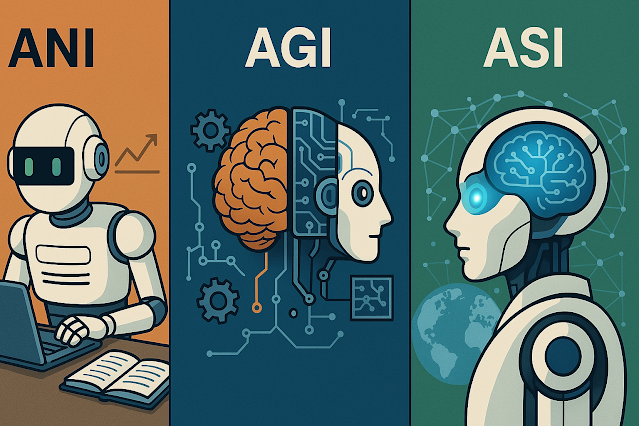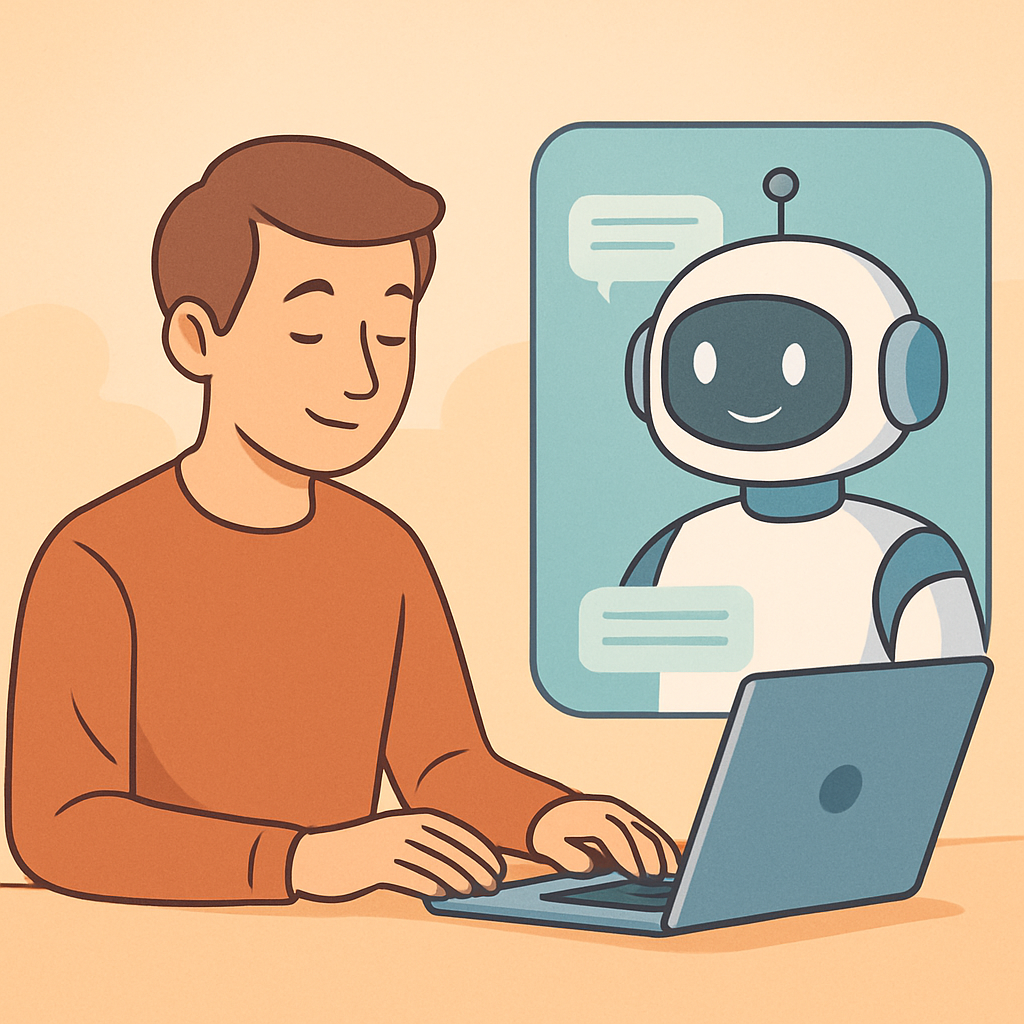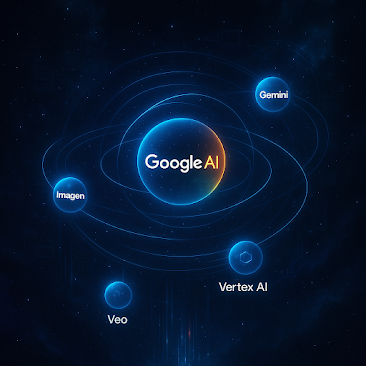🚀 The AI Revolution: Where We Are, Where We’re Going, and Why It Matters
Beyond the Hype: A Clear Guide to AI, AGI, ASI, and Our Future
Ever wondered about the difference between the AI of today and the super-intelligent systems of science fiction? This guide breaks down the key concepts of AI, AGI (Artificial General Intelligence), and ASI (Artificial Superintelligence). Discover how AI is evolving at an unprecedented pace and why ethical considerations are more crucial than ever as we build our intelligent future.
🌅 Introduction: The Dawn of a New Era in AI
In just a few short years, Artificial Intelligence (AI) has leaped from the pages of science fiction and the confines of research labs into our daily lives. From the virtual assistants on our phones to the complex algorithms that recommend movies and shape news feeds, AI is everywhere. But the technology we interact with today is just the first step on a much longer and more profound journey.
You’ve likely heard a growing number of acronyms being used to describe the future: AGI and ASI. These aren’t just technical jargon; they represent monumental shifts in the nature of intelligence itself. This post will demystify these terms, explore the incredible evolution AI has undergone since 2020, and discuss why building this future ethically is the most important work of our time.
🤖 De-Mystifying the Intelligences: AI, AGI, and ASI
To understand where we’re going, we first need to be clear about where we are. All AI is not created equal. The technology falls into three main categories.
1. Artificial Narrow Intelligence (ANI) – The Specialist We Know Today
This is the only type of AI that currently exists. ANI, sometimes called “Weak AI,” is designed and trained to perform a specific task or a narrow range of tasks. It can often perform that task with superhuman efficiency and accuracy, but it operates within a pre-defined, limited context. It doesn’t possess self-awareness or a human-like consciousness.
Examples:
- Generative AI like ChatGPT: Masterful at understanding and generating human language, but it doesn’t “know” or “understand” in the human sense.
- Facial Recognition Software: Can identify faces in photos and videos with incredible accuracy.
- Google’s AlphaGo: Famously defeated the world’s best Go players, but it cannot play chess or drive a car.
- Recommendation Engines: The algorithms on Netflix, Spotify, and Amazon are experts at predicting what you might like next.
2. Artificial General Intelligence (AGI) – The Next Frontier
AGI, or “Strong AI,” is the next major milestone in AI development. It refers to a machine with the ability to understand, learn, and apply its intelligence to solve any intellectual task that a human being can. An AGI would be able to reason, plan, solve problems, think abstractly, comprehend complex ideas, and learn from experience. It would have a flexible, adaptable intelligence, much like our own.
We are not there yet. While models are becoming more generalized, no system has achieved true AGI. Reaching this stage is the primary goal of leading research labs like OpenAI and Google DeepMind.
3. Artificial Superintelligence (ASI) – Beyond Human Comprehension
ASI is a hypothetical form of intelligence that would not just match human intellect but would vastly surpass it in every domain. An ASI would be more creative, better at problem-solving, and have superior social skills compared to the most brilliant human minds.
The transition from AGI to ASI could be incredibly rapid due to a concept known as “recursive self-improvement,” where an AI continually and exponentially improves its own intelligence. The implications of ASI are world-altering, raising profound questions about the future of humanity, control, and our place in the universe.
⚡ The Great Acceleration: The Transformation After 2020
Since 2020, AI has experienced a rapid and transformative leap, marked by the release of OpenAI’s GPT-3. This sparked a global wave of innovation, including generative AI capable of producing text, images, music, and video. The exponential rise in computing power, massive private investments, and expanding capabilities signal a shift from task-based tools to intelligent systems that can understand, create, and reason.
🧭 With Great Power Comes Great Responsibility: The Call for Ethical AI
As AI advances from narrow intelligence (ANI) to general intelligence (AGI), ethical challenges become increasingly critical. The quality and impact of AI systems depend heavily on the values, data, and oversight they are built upon. Addressing these concerns is essential to ensure AI benefits humanity.
Key ethical priorities include:
- Bias & Fairness: Preventing AI from amplifying societal biases based on race, gender, or background
- Transparency & Explainability: Ensuring AI decisions can be understood and trusted, especially in critical sectors.
- Accountability: Defining clear responsibility in cases where AI systems fail or cause harm.
- Privacy Protection: Safeguarding personal data from misuse or surveillance.
- Human Autonomy & Control: AI must support but not override human decision-making. Humans should always remain in control of critical actions and choices.
Creating ethical AI isn’t optional it requires a united effort from developers, policymakers, ethicists, and society to guide these powerful technologies toward safe, fair, and human-aligned outcomes.
🌍 Conclusion: Guiding the Future, Ethically
The distinction between AI, AGI, and ASI is not merely academic; it’s a roadmap of our potential future. We currently live in the age of ANI, specialized tools that are reshaping industries and our creative processes. The pursuit of AGI represents the quest to build a machine with human-like understanding, a development that would be as transformative as the industrial revolution. And the prospect of ASI, while still theoretical, compels us to think deeply about our long-term goals and the very definition of intelligence. The journey ahead is exhilarating but also filled with challenges. The speed of AI’s evolution demands that we prioritize ethical development, ensuring that the systems we build are not only powerful but also wise, fair, and beneficial for all of humanity.


